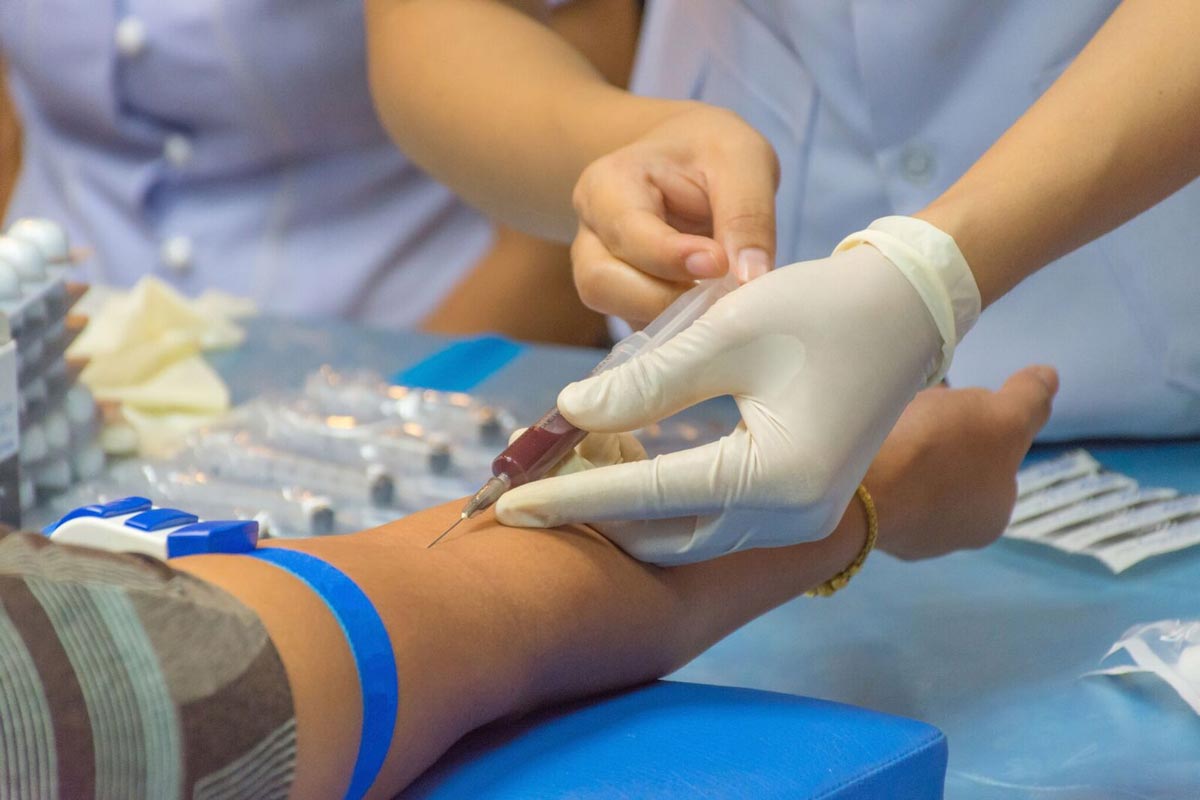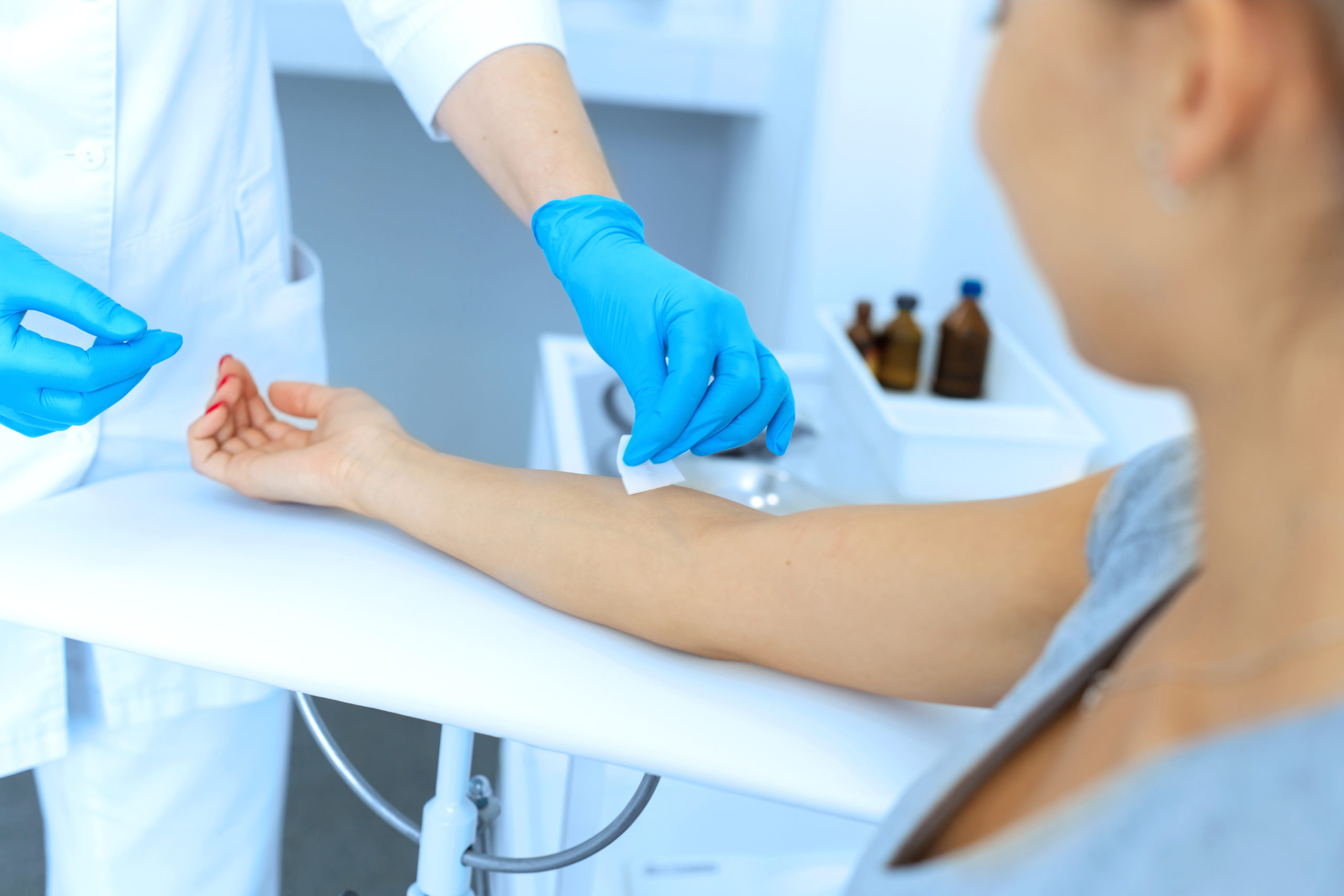Port Draw Blood
Port Draw Blood - A cvc is a flexible tube that’s put into one of your veins. A port also allows easy access to a vein for blood draws. This means it is placed into your body during a procedure and it gives direct access to a vein. Web all registered nurses, nurse practitioners, and doctors can draw blood from ports. People can have a port for weeks, months, or longer. It allows healthcare providers to draw blood and give treatments — including chemotherapy drugs — without a needle stick. Peripheral blood draws often save the patient time, especially during peak hours. It is not feasible for the nurse/clinic to do so. You may need to get medication in a vein larger than the ones in your arms. A peripheral blood draw is required (e.g. They can also be used to infuse contrast solution for diagnostic imaging like cat scans and mris. Each state and organization has its own rules about who can access ports. Web although bloods can be drawn via an implanted port, there may be times when: Web all registered nurses, nurse practitioners, and doctors can draw blood from ports. The port. A cvc is a flexible tube that’s put into one of your veins. Quarter or canadian loonie) that is placed underneath your skin, usually above your breast or below the collarbone, and is used to. It is not feasible for the nurse/clinic to do so. People can have a port for weeks, months, or longer. Each state and organization has. What is an implanted venous access device (port)? They can also be used to infuse contrast solution for diagnostic imaging like cat scans and mris. Web an implanted port is a type of central venous catheter (cvc). Web ports can be used to draw blood and deliver any other intravenous medication patients may need during treatment. A port can remain. People with cancer, severe infections, kidney failure and ibd may need implanted ports. On treatment days, you’ll have your port accessed once, with a special needle stuck directly into the port. Web an implanted port is a device to put medicine, blood, nutrients, or fluids directly into your blood. Read more about our content writing process. Other clinical staff, like. Web a chemo port is a small, implantable device that attaches to a vein (usually in your upper chest area). Peripheral blood draws often save the patient time, especially during peak hours. The port may be used to draw blood for tests only if another vein, such as in the hand or arm, can't be used. A port also allows. It is not feasible for the nurse/clinic to do so. Other clinical staff, like phlebotomists, may need a special certification to draw blood from a port. People can have a port for weeks, months, or longer. Your port lets the medication go into your bloodstream through your vein. Web all registered nurses, nurse practitioners, and doctors can draw blood from. A port is usually put under the skin of your chest below your collarbone. A port can remain in place for weeks, months or even years. Web healthcare providers use implanted ports to give iv treatments and blood transfusions directly into a vein. The port may be used to draw blood for tests only if another vein, such as in. A port also allows easy access to a vein for blood draws. A peripheral blood draw is required (e.g. Quarter or canadian loonie) that is placed underneath your skin, usually above your breast or below the collarbone, and is used to. With the device, you need fewer needle sticks for certain treatments, like chemotherapy. It allows healthcare providers to draw. No, they are not the same thing. People with cancer, severe infections, kidney failure and ibd may need implanted ports. Web an implanted port is a device to put medicine, blood, nutrients, or fluids directly into your blood. A port is usually put under the skin of your chest below your collarbone. Quarter or canadian loonie) that is placed underneath. A port is usually put under the skin of your chest below your collarbone. Web healthcare providers use implanted ports to give iv treatments and blood transfusions directly into a vein. No, they are not the same thing. Each state and organization has its own rules about who can access ports. A cvc is a flexible tube that’s put into. Web healthcare providers use implanted ports to give iv treatments and blood transfusions directly into a vein. On treatment days, you’ll have your port accessed once, with a special needle stuck directly into the port. A port is usually put under the skin of your chest below your collarbone. People with cancer, severe infections, kidney failure and ibd may need implanted ports. The port may be used to draw blood for tests only if another vein, such as in the hand or arm, can't be used. No, they are not the same thing. Certain labs, such as ptts) ii. You may need to get medication in a vein larger than the ones in your arms. A peripheral blood draw is required (e.g. Web an implanted port is a type of central venous catheter (cvc). Read more about our content writing process. Web although bloods can be drawn via an implanted port, there may be times when: Web a port is a plastic disc (roughly the size of a u.s. A cvc is a flexible tube that’s put into one of your veins. Other clinical staff, like phlebotomists, may need a special certification to draw blood from a port. Web a chemo port is a small, implantable device that attaches to a vein (usually in your upper chest area).
How to Draw Blood Drops Ward Wroody42

Drawing Blood from Port YouTube

Phlebotomy Technicians and the Art of the Blood Draw MHCC

How To Draw Blood A StepbyStep Guide Nurses News Hubb

Phlebotomy Venipuncture Procedure I Safe and Effective Blood Draw

Drawing blood from a picc line with surgical gloves (peripherally

How to Draw Blood From an Iv Villarreal Tilk1949

Central Line Insertion and How to Draw Blood — From New to ICU

Venipuncture How To Draw Blood IN ONE GO (Instantly improve your

PICC Line Blood Draw Explained E Phlebotomy Training
Web An Implanted Port Is A Device To Put Medicine, Blood, Nutrients, Or Fluids Directly Into Your Blood.
Peripheral Blood Draws Often Save The Patient Time, Especially During Peak Hours.
It Is Not Feasible For The Nurse/Clinic To Do So.
Quarter Or Canadian Loonie) That Is Placed Underneath Your Skin, Usually Above Your Breast Or Below The Collarbone, And Is Used To.
Related Post: